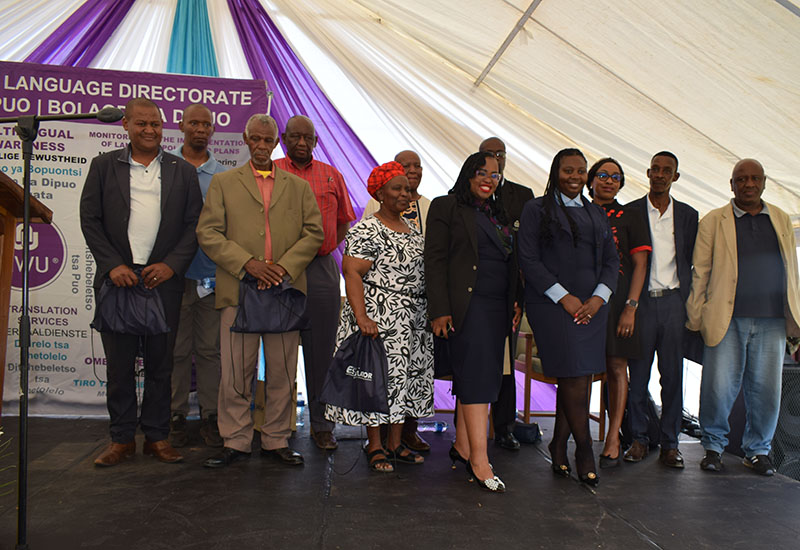Gosego Phutieagae and Phenyo Mokgothu
If young people take ownership of their linguistic future, they can ensure that the internet becomes multilingual. This call to action to the youth was made during the North-West University’s (NWU’s) 2025 Language Awareness Week.
The week featured colloquiums with traditional leaders and scholars, interactive dialogues on language use in digital media, cultural performances, poetry, panel discussions on indigenous knowledge systems, and a cultural day showcasing traditional food, attire and music.
“Every post, stream and app created in an African language helps it survive. The next generation has the power to make the internet truly multilingual,” said Mmasibidi Setaka, a digital humanities researcher at the South African Centre for Digital Language Resources (SADiLaR), giving the keynote address at the opening ceremony.
“We are living in a digital-first world where technology determines how people speak, read and write. For indigenous languages to remain relevant, they need to exist online, in content creation, podcasts, digital archives and social media,” Mmasibidi told the audience assembled in the Mahikeng Campus Great Hall.
She urged African institutions to design technology that reflects linguistic diversity. “Digital tools are too often built around dominant global languages. We have to change this by investing in software and language data that includes Setswana, isiZulu, Sepedi and others. Technology must serve our communities, not silence them.”
Use technology to amplify multilingualism
Dr Kea Seshoka, director of the Language Directorate, said the university is committed to advancing multilingualism and creating spaces for indigenous languages to thrive beyond the classroom. “Language is more than a tool of communication; it is a vessel of identity, memory and knowledge,” she said. “Our responsibility as a university extends beyond teaching and is also about ensuring that our languages are spoken, written, digitised and celebrated in all aspects of life.”
Dr Seshoka added that technology should be seen as an opportunity to strengthen the country’s indigenous languages.
“We need to harness digital platforms to revitalise our languages. Developing digital dictionaries, translation tools and AI-driven language technologies will ensure that Setswana, isiXhosa and other African languages have a secure future.”
She described Language Awareness Week as a collaborative effort. “This is about sharing ideas, celebrating diversity and taking practical steps toward a multilingual future. It reminds us that language work is community work, and everyone has a role to play.”
The aptness of this statement was borne out by the composition of the guests who attended the event, from academics, students and traditional leaders to policymakers
and language bodies, including the Pan South African Language Board, SADiLAR and the North West House of Traditional and Khoisan Leaders.
Together, these events underscored the NWU’s message: the future of African languages depends on their ability to adapt and thrive in the digital age, and it is up to the next generation to ensure a multilingual future.

Various internal and external stakeholders contributed to a successful NWU 2025 Language Awareness Week.
